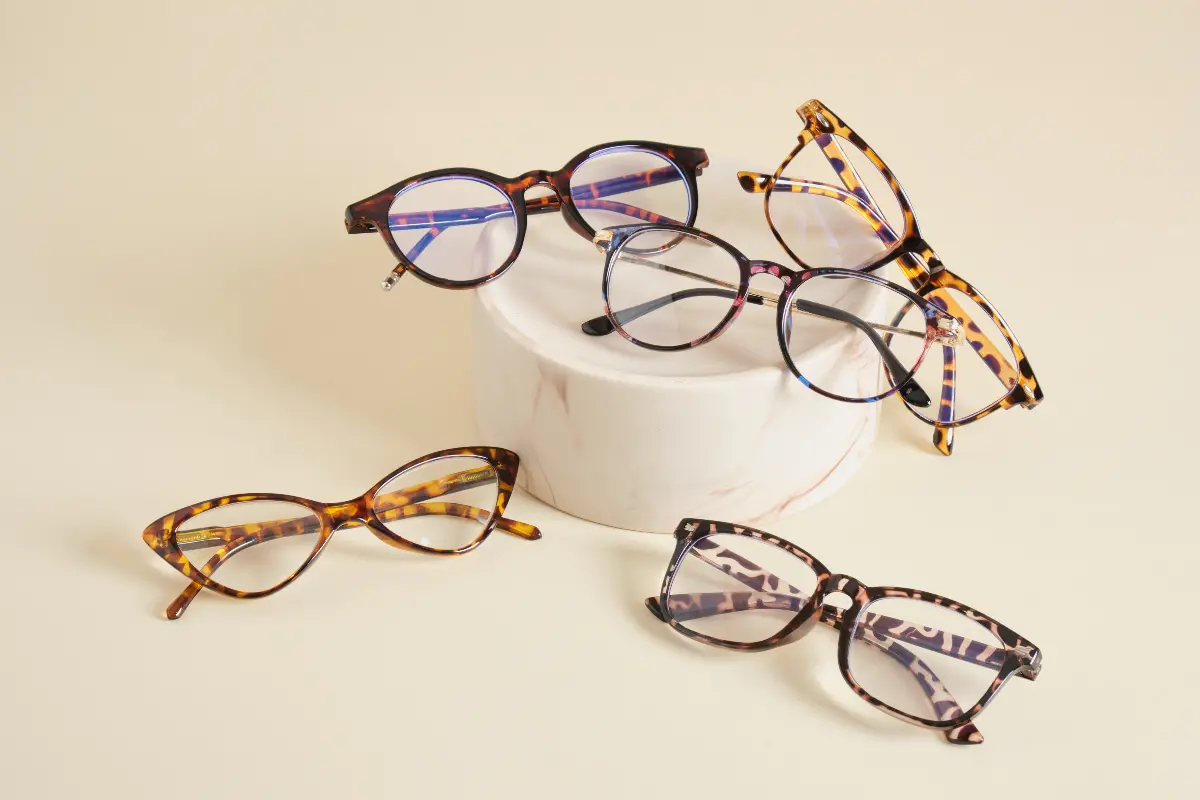In the arena of eyewear, the age-old debate between spectacles and contact lenses has taken an interesting turn. Once seen as a necessary inconvenience for those needing vision correction, glasses have emerged as a stylish accessory, with many individuals choosing specs over contacts. Let's delve into the reasons why glasses are increasingly winning hearts and eyes.

For starters, let's talk about convenience and ease of use. Glasses offer a no-fuss solution for vision correction. There's no need to worry about the meticulous cleaning routines and delicate handling that contact lenses require. Gone are the days of fumbling with tiny lenses, solutions, and cases—one simply slips on a pair of glasses and the world comes into sharper focus.
Then there's the health aspect. Contacts sit directly on the eye and can restrict oxygen flow, which isn't the case with glasses. This direct contact can also increase the risk of eye infections and irritation, particularly if not cleaned and stored properly. In contrast, glasses reduce these risks considerably and also provide a layer of protection from environmental factors such as wind, dust, and debris that could potentially harm the eyes.
Aesthetics plays a significant role in the preference for glasses. With endless frame designs, colours, and materials, glasses have transcended their traditional role as visual aids and have become a means of personal expression. They can accentuate facial features, make a fashion statement, and even offer a certain air of sophistication, intelligence, or whimsy, depending on the style chosen. The right frames can become a part of someone's identity, an accessory as essential as a watch or a piece of signature jewellery.
While contact lenses can offer the benefit of changing one’s eye colour or providing a cosmetic overlay, they lack the versatility and visibility of glasses when it comes to making an immediate fashion statement.
Advancements in technology have also elevated the appeal of glasses. The latest coatings and treatments for lenses can now make them scratch-resistant, anti-reflective, and even block harmful blue light from screens, offering more protection and comfort than ever before. Transition lenses, which adjust to the light conditions automatically, provide a convenient two-in-one solution for indoor and outdoor visibility.

Cost effectiveness is another factor to consider. Glasses generally require a one-time investment and can last for years if taken care of properly. On the other hand, contact lenses have recurring costs that can add up: purchasing new lenses, saline solutions, and more frequent optometrist visits due to potential eye health issues. For those on a budget or looking for a long-term solution, glasses are increasingly seen as the economically smarter choice.
For the environmentally conscious individual, glasses are also the greener option. The manufacturing, packaging, and disposal of contact lenses contribute to environmental waste. Given that many lenses are not biodegradable and can even find their way into our waterways, glasses offer a more sustainable alternative with less environmental impact.
Moreover, the pandemic has influenced preferences. With more people spending time indoors and in front of screens, the demand for blue light-filtering glasses has surged. Also, the inconvenience of fogged-up lenses when wearing masks has prompted many contact lens wearers to switch to the simplicity of spectacles during these times.
Lastly, we must not forget about the demographic that may have once been the most ardent users of contacts: teenagers. The younger generations are now embracing glasses as part of their identity and self-expression. Hipster culture, coupled with celebrity influences, has made glasses cool again, steering a shift that sees an increasing number of young people proudly donning frames.
In conclusion, the ascent of glasses over contacts is a phenomenon rooted in practicality, health considerations, aesthetic flexibility, technological advancements, cost, sustainability, and cultural trends. As we continue to witness the evolution of eyewear fashion and technology, it seems that glasses are not just a visual aid but a lifestyle choice, one that resonates with individuals from all walks of life. Whether for statement-making, ease of use, or simply for the love of specs, it’s clear that glasses are, without a doubt, having their moment in the limelight. Skeptic or not, the future of eyewear seems to be looking rather bright and decidedly framed.
